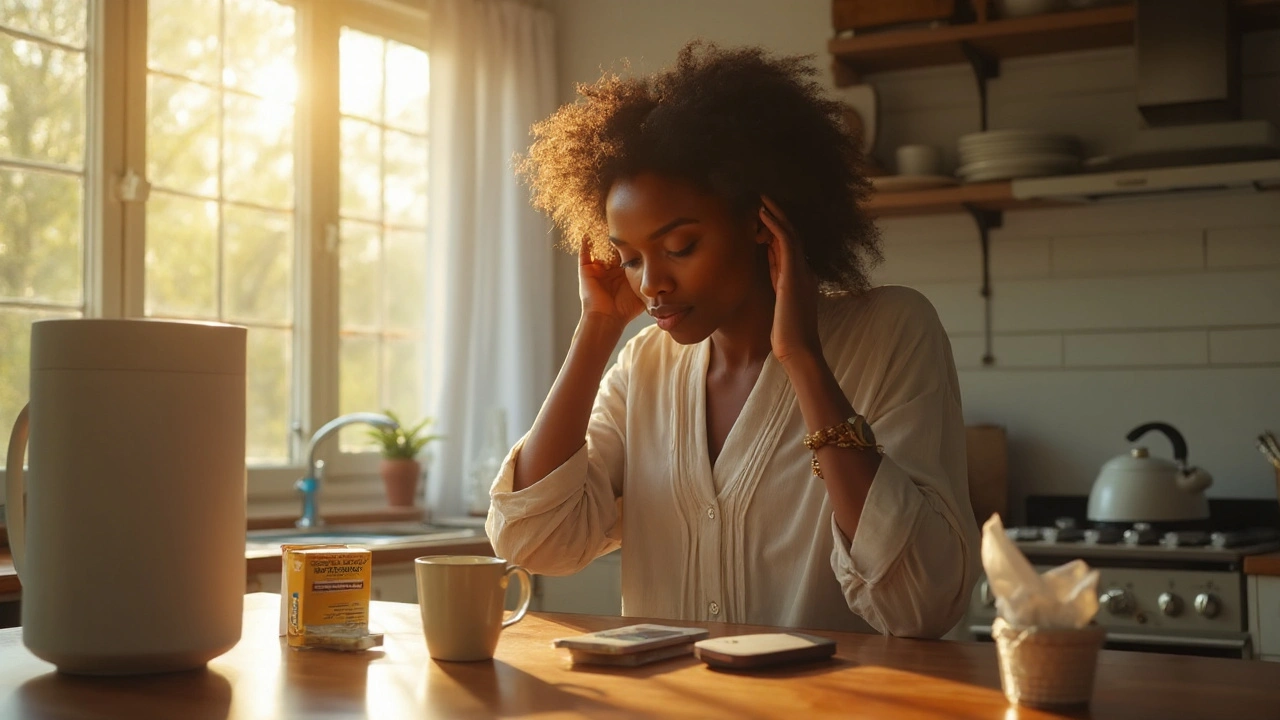
Tinnitus and Allergies: 2025 Step‑by‑Step Guide to Relief and Prevention
Ringing gets louder when allergies hit? Here’s a clear 2025 plan to calm tinnitus by treating allergies, easing ear pressure, and knowing when to see a doctor.
If you’ve ever suffered from sneezing, itchy eyes or a runny nose, you probably reached for an antihistamine at some point. These meds block histamine, the chemical your body releases during an allergic reaction. By stopping histamine, they calm down the symptoms that make you feel miserable. In this guide we’ll break down the most common antihistamines, when they’re best to use, and what to watch out for.
OTC antihistamines are the ones you can pick up without a script. The first‑generation drugs like diphenhydramine (Benadryl) work fast but often make you drowsy. They’re handy for nighttime allergy relief or for short‑term use when you need a quick fix. Second‑generation options such as loratadine (Claritin), cetirizine (Zyrtec) and fexofenadine (Allegra) stay awake‑friendly, so you can take them during the day without feeling groggy. Most of them come in tablets, liquids, or even chewable forms, which makes them easy to fit into busy schedules.
Even though antihistamines are generally safe, they’re not a free‑for‑all. If you have high blood pressure, glaucoma, or are pregnant, check with a pharmacist before starting. Mixing antihistamines with alcohol or sedatives can boost drowsiness and impair your reaction time. Watch for side effects like dry mouth, headache or, in rare cases, fast heartbeat. If symptoms linger more than a week, worsen, or you develop a rash that looks like hives, it’s time to get professional advice.
Buying antihistamines online is convenient, but stick to reputable pharmacies that require a prescription for prescription‑only drugs. Look for clear contact info, secure payment options, and reviews that mention real‑world experiences. Avoid sites promising “miracle cures” or ultra‑low prices – they’re often selling fake or expired medication.
Choosing the right antihistamine depends on what you need. For nighttime relief, a first‑generation drug may be best. If you need something that won’t knock you out at work, go for a second‑generation option. Keep a list of your current meds handy, and ask a pharmacist if you’re unsure about drug interactions. A little extra caution now saves you from headaches later.
In short, antihistamines are a simple, effective way to shut down allergy flare‑ups. Knowing the difference between generations, watching for side effects, and buying from trusted sources will keep you feeling clear‑headed and comfortable all season long.

Ringing gets louder when allergies hit? Here’s a clear 2025 plan to calm tinnitus by treating allergies, easing ear pressure, and knowing when to see a doctor.